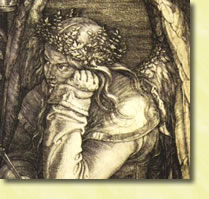A video of this sermon can be found here.
Mal 3:3-5
Psalm 126
1 Cor. 4:4-21
Luke 3:1-6

I will begin my sermon with an outrageous statement. Advent is the season of the church year that focuses on what theologians call the doctrine of eschatology – the last things – but in the last few decades we seem to be moving into an era without eschatology. If that is so, the Christian notion of eschatology seems to be increasingly irrelevant to contemporary culture.
What do I mean when I saw that the contemporary era is one without eschatology? This has not always been the case. In the mid-twentieth century, the philosopher Karl Löwith wrote a book called Meaning in History, in which he claimed that modern philosophies of history were secularized versions of a Christian theology of history.1 Hegelianism, Marxism, the secular notion of progress – all of these were basically secularized notions of the Christian understanding of divine providence. Modern secularism believed that history was moving in a single direction toward a goal; however, the goal was not a Christian new heavens and a new earth, but some version of a secular paradise. These were eschatologies in which humanity had taken the place of God.
All of this seems to have changed in the last couple of decades. I would suggest that this is because post-modernity is no longer living on borrowed memories. A belief in a secular eschatology was possible only so long as Christian notions of history, providence, and eschatology were still somewhat taken for granted without asking where such notions came from. The philosopher Charles Taylor has claimed that we now live in a Secular Age, an age marked by what Taylor calls the “immanent frame.”2 The “immanent frame” is the notion that everything in the world is part of a natural order without any reference to anything outside itself and an “immanent” causal order. The “immanent frame” is what happens when unbelief is the “default option” for how people live in post-modern culture. Within the immanent frame, secular notions of progress or any kind of optimistic vision of the direction in which history might be moving does not make real sense.
The shift from living in a world of secular progress to living exclusively in the immanent frame means that we now seem to be living in a world of “normal nihilism.” What do I mean by “normal nihilism?” (more…)










